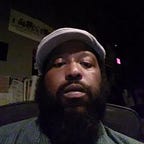Democracy at Work
“Democracy isn’t something you do every four years. Democracy is what you do everyday.”
There’s a short documentary called Own The Change that showcases average, everyday, and regular people like you and me who became owners of their workplace. This documentary gives examples of a myriad of folks owning a business together and running it democratically as a way to create jobs under a different business model.
Creating value for society was the core message in the documentary but another message, told from individuals including Melvin “Ricky” Macklin who described finding out not only was he a window maker but also an electrician, a plumber, and a salesman is that you become more and grow as a person through that ownership. Melvin worked for New Era Windows based in Chicago, formerly Republic Windows, which garnered media attention when they shut down and the workers took over the factory in 2012.
Another of the worker-owners at the cooperatively owned Union Cab of Madison, Martha Kemble explained, “my labor and what I’m doing is a part of me and who I am”. Union Cab of Madison WI has been in operation since 1979.
Other folks throughout the film told their stories and championed the sense of democracy and working towards a new frontier of building an alternative form of business hierarchy. A lot of these stories showcased the skills gained through owning a business together.
In my own personal experience working at a cooperatively owned cafe and bookstore located in the Station North Arts District in Baltimore Maryland between 2013–2018, being able to make business decisions with other folks was a liberating experience that entrenched in me, a deeper and personal understanding of accountability to others I work for, and the community that I served which paid my bills and put food in my and my family’s mouth.
During my employment I participated in monthly meetings to figure out everything from decorating our storefront to how we deal with our tax burdens. Often, there would be heated back and forth debates on what and where money needs to be spent or if money spent on said thing was worth it. There were also quarterly budget meetings where I learned what profit and loss means and the indispensable understanding of the difference between profit and cash flow. The day-to-day in-and-outs of how a business like that is run, from how food is served, the onerous work of wiping and sanitizing surfaces, answering the phone, and who wants to take on those responsibilities; that hard sweaty work of serving the public is decided by the folks that have to do the actual work, the workers, not a ‘boss,’ ‘supervisor,’ or ‘manager’ who most of times have no direct practical experience in doing the work that directly deals with patrons.
All the questions concerning the many decisions to be made are clarified and made coherent to all and voted on through the meeting process which is made up of folks proposing topics and issues to discuss while actively listening to different solutions to problems, openly debating them, and deciding through their vote whether they disagree, agree, stand aside in the decision being made, or block it completely. Once a solution is proposed people voted in favor of it with each person’s vote counting equally and a super majority determining the outcome.
The Society for Human Resource Management, the largest Human Resources industry professional association, published an Employee Job Satisfaction survey report showing that the top priorities of employees are job security, followed by, benefits, use of abilities, and finally the work itself. This paints the picture that what holds the most meaning is a sense that your job is secure, you benefit from it and that you’re put in a position or department you actually have a passion for and want to do. The responsibility becomes personal instead of depending on one owner who may not have the worker’s interest as top priority. YOU become the one in charge. In owning your workplace, you steer the ship and have the personal responsibility to see that it continues to float. In the decisions you make you are responsible for your business thriving or failing and it commits you to having a deep personal and financial investment in keeping your job and ensuring it benefits you and others. It also implies that a workplace should be beneficial to its workers and that people should feel confident, productive, and involved in the work they do and decisions that are made. In having control and ownership of your employment and workplace, Democracy becomes an everyday endeavor and responsibility.
Originally published at http://mmntclarity.wordpress.com on January 23, 2021.
